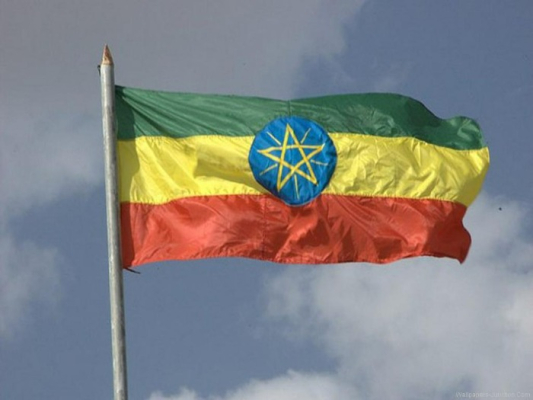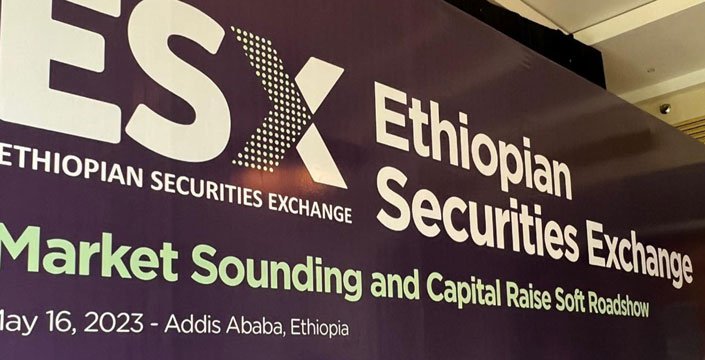Fitch Ratings has downgraded Ethiopia's Long-Term Foreign-Currency Issuer Default Rating (IDR) to 'CCC-' from 'CCC'. Fitch typically does not assign Outlooks to sovereigns with a rating of 'CCC' or below. Fitch has removed the Long-Term IDRs from Under Criteria Observation (UCO).
A full list of rating actions is at the end of this rating action commentary.
Key Rating Drivers
Downgrade of IDRs: The downgrade of Ethiopia's LT FC IDR to 'CCC-' reflects the lack of identified external financing necessary to meet substantial external financing gaps, along with a material decline in Ethiopia's external liquidity. This is balanced against the November 2022 peace agreement reached in the Tigray War, which will improve the medium-term macro and fiscal outlooks; the expected easing of global supply chain constraints, which will help to ease inflationary and external pressures; and the improvement of public debt metrics.
Moreover, the 'CCC-' rating reflects the significant risk of a default event that may result from the government's participation in the G20 Common Framework (CF) debt relief initiative, given the mechanism's guiding principle of comparable treatment for both official and private creditors.
Worsening External Liquidity: In the absence of a CF debt treatment that would reduce Ethiopia's external debt servicing burden and facilitate the disbursement of additional external financing, the country's external liquidity will continue to worsen. Fitch estimates that Ethiopia faces USD1.6 billion in external debt interest payments in the fiscal year ending June 2023 (FY23) and USD1 billion in FY24. This represents 2.3% and 2.2% of current external receipts, which compares favourably with the 'B'/'C'/'D' medians of 3.7% and 4%. However, gross international reserves fell to USD1.5 billion (less than one month of current external payments) in FY22, and a widening current account deficit will see reserves fall further in FY23. We forecast the current account deficit plus net FDI at USD1.7 billion in FY23.
Fitch estimates that Ethiopia's net external debt at 166% of current external receipts at end-FY22; compared with the 'B'/'C'/'D' median of 58%. Of the USD28 billion outstanding in external public sector debt, USD19 billion is owed directly by the central government. We believe that Ethiopia's state-owned enterprises (SOE), which hold the remaining amount, are profitable and able to meet their financing obligations. The government's direct debt servicing obligations will be met through a combination of receipts from the ongoing privatisation programme and disbursements from the World Bank and African Development Bank; although the exact terms of multilateral financing have not been confirmed. The government will face a sharp increase in external debt amortisations in FY25, with the coming due of the USD1 billion Eurobond in December 2024.
No Progress on Common Framework: As of November 2022, the official creditor committee had met four times, but has yet to reach any publicly acknowledged agreement on Ethiopia's debt treatment. Part of the delay has been due to the Tigray conflict and the inability of the IMF to begin work on the necessary debt sustainability analysis. However, the IMF was able to conduct a mission in June 2022 and has reported progress on working with the authorities on their economic reform programme. Fitch expects that an IMF programme will be forthcoming and will provide the necessary external financing, both from the IMF and other multilaterals, to address the financing gaps that remain upon agreement of a CF debt treatment.
A key pillar in the reform agenda is the commercialisation and privatisation of Ethiopia's SOEs, which we expect to continue in the coming years and to contribute to external financing in the form of government receipts and higher FDI inflows. Earlier in 2022, the government completed the sale of a license to operate telecom services in the country and is proceeding with both the partial sale of Ethio Telecom and the tender of a second telecom license. The government is also moving ahead with the sale of several enterprises in the sugar sector.
Public Debt Metrics Improving: The general government fiscal deficit widened to 3.4% of GDP in FY22, owing to lower revenue collection and a supplemental budget that increased military and humanitarian spending. Public sector debt continues to increase in nominal terms, but has improved as a percentage of GDP owing to high inflation. Central government debt fell to 32.3% of GDP in FY22, from 33.6% in FY21, and we expect debt/GDP to fall further in FY23 and FY24. Even with the addition of approximately 19% of GDP in debt held by SOEs, total public sector debt is lower than the 'B'/'C'/'D' median forecast of 69.5%. While more than half of government debt is held by external creditors, the overwhelming majority is held by multilateral and bilateral lenders.
Domestic Interest Costs Will Rise: The high share of concessional and near-concessional debt is responsible for Ethiopia's low government interest costs, but increased reliance on domestic debt issuance will raise interest costs. Interest service is 6.5% of government revenue, compared with the 'B'/'C'/'D' median of 11.8%. However, we forecast interest costs to increase, to 8.3% of GDP by FY24, as the cost of domestic debt issuance rises in line with domestic interest rates and a liberalisation of the domestic debt market.
A significant share of domestic debt has been in the form of direct advances from the National Bank of Ethiopia (NBE), reaching ETB200 trillion (6.4% of FY20 GDP), or just over half of outstanding domestic debt, in 1Q20 before being converted to interest-bearing bonds. The stock of NBE advances has again increased, to ETB160 trillion (2.7% of GDP) as of end-FY22.
External and Domestic Pressures Bring High Inflation: Fitch forecasts inflation to slow to 30% in FY23 after averaging 34% in FY22. This remains well above the 'B'/'C'/D' median of 7.7%. Prices for food, the largest share of the consumption basket, have risen due to drought in some areas and the Tigray conflict has complicated domestic supply chains. We expect inflationary pressures to fall as domestic conditions improve and some of the external supply constraints from the Russia-Ukraine war ease.
As inflationary pressures are a combination of structural and imported factors, the NBE has limited capacity to intervene. However, we expect that lower levels of monetary financing would help to bring down inflation and implementing domestic debt market reforms would also improve the ability of the central bank to conduct monetary policy.
ESG - Governance: Ethiopia has an ESG Relevance Score (RS) of '5' for both Political Stability and Rights and for the Rule of Law, Institutional and Regulatory Quality and Control of Corruption. Theses scores reflect the high weight that the World Bank Governance Indicators (WBGI) have in our proprietary Sovereign Rating Model. Ethiopia has a low WBGI ranking at 23.6, reflecting the absence of a recent track record of peaceful political transitions, relatively weak rights for participation in the political process, weak institutional capacity, uneven application of the rule of law and a high level of corruption.
RATING SENSITIVITIES
Factors that could, individually or collectively, lead to negative rating action/downgrade:
- Structural Features: Stronger evidence that Ethiopia's engagement in the G20 CF will lead to comparable treatment for private sector creditors consistent with a default event under Fitch's criteria.
- External Finances: Increased external vulnerability that raises the probability of default irrespective of the G20 CF, such as wider-than-expected current account deficits and/or increased downward pressure on already low foreign-exchange reserves.
Factors that could, individually or collectively, lead to positive rating action/upgrade:
- Structural Features: A high degree of confidence that the G20 CF will not lead to a sovereign default event on debt owed to private creditors.
- External Finances: Stronger external finances with acceleration in exports, for example, leading to smaller current account deficits and higher foreign-currency reserves.

































